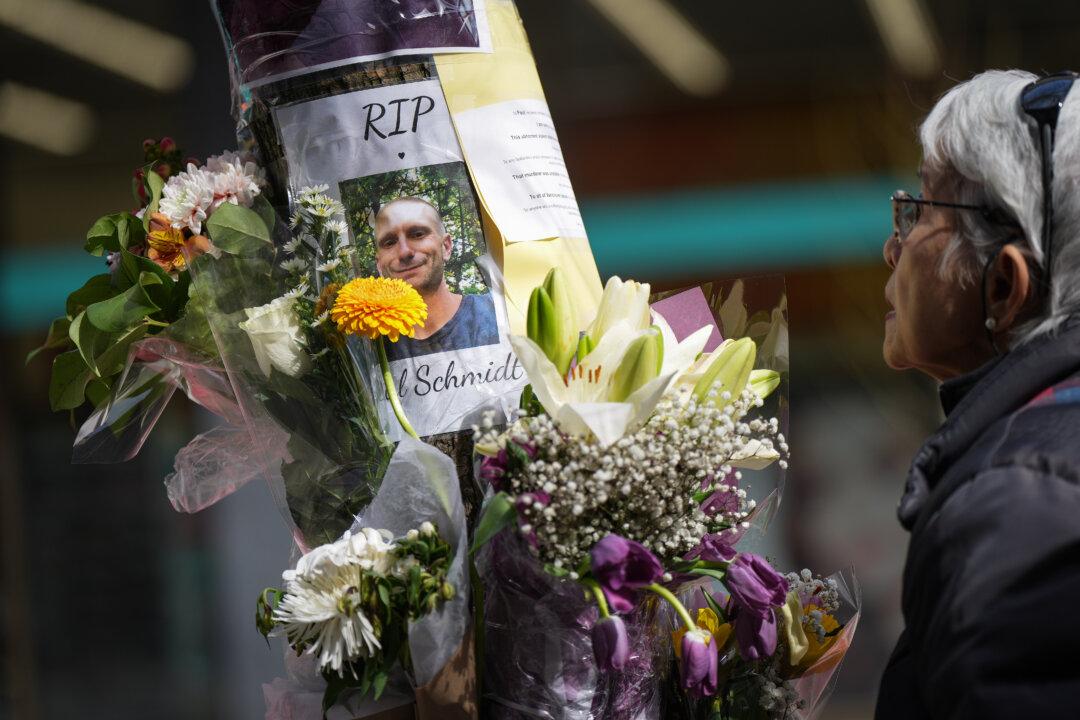When Paul Stanley Schmidt was stabbed to death in front of his 3-year-old daughter while standing outside a downtown Vancouver Starbucks on March 26, nobody stepped in to help. An onlooker sipped his coffee, while two bystanders filmed, one of them a TikToker who took a selfie video next to the dying man’s body.
David Haskell, an associate professor in the faculty of Liberal Arts at the Wilfrid Laurier University, told The Epoch Times that this reaction is different from the so-called “bystander effect,” where individuals in a crowd freeze up because they think someone else will help the person in trouble, or because the situation is ambiguous and they’re not sure what to do.





